Cote de Texas Top Ten Designer #4 is none other than Ms. Gerrie Bremermann, the Grande Dame of the "new" New Orleans style and arguably the most famous designer working in the town today. Perhaps no one in this design savvy city has done more than Bremermann for changing the Old Guard's reputation for using dark, heavy, and formal period antiques. Bremermann continues to breathe new life into the town by eschewing this look that New Orleans has long been famous for. Coaxed along ever so gently by Ms. Bremermann, former Royal Street enthusiasts have turned their heads straight to Magazine Street and never looked back. The town is now riding a new wave fueled by the stores on Magazine Street stocked with painted finishes, Swedish furniture, and informal French Provencal antiques. Bremermann's own shop on Magazine Street is a living testament to her unerring eye: mixed in with the warm fruitwoods are the white woods of Swedish design, a style she has championed, single handedly bringing it to the south.
An avid Francophile, Bremermann has reached the top by doing what she does best: sticking with the classics, but making the classics accessible, inviting, warm and even cozy. Her look transcends the ages - many of her clients are children and even grandchildren of former customers from her over thirty years in the business. She tends to work with the same people over and over again, on second and third houses, a testament to her temperament and class. With no web site, save for her 1st Dibs store, and even fewer publicity-seeking events chronicled on Google, it is difficult to learn much, if anything, about Bremermann's history and early life. But, perhaps, that's not really necessary knowledge. The images of her work in her many published articles says all there is to know.
Bremermann is a self taught interior designer and she likes to teach her clients simple rules to follow in order to get the look they want. Most important to learn: don't buy quantity, buy quality. She encourages her younger clients to buy one fabulous piece and wait until another can be added rather than just filling up an empty room with cheap imitations. While this style of decorating may take years to complete, the effort will be worth it, antiques appreciate in value, store bought furniture does not. She also has strict ideas about design and sticks with them: "scale and balance are the most important elements in a room." Her interiors rely heavily on symmetry, in its vignettes, and in the furniture placement. Exaggeration of scale is an effective way to bring interest and informality to a room. She says "intentionally oversized elements prevent a grand room from feeling intimidating." Another lesson to be learned is that the key to a comfortable room is in a mix of fabrics - silks with cottons - letting one dressy element overshadow a room will make it sterile and unlivable. Casual fabrics help prevent this. She tends to work with the same colors: white, creams, ivories, and caramels. "Some people ask why I choose the same colors over and over again. The answer is simple: because they are timeless and they work." To her basic color scheme, she adds accents of french blues or aquas, pinks and apricots, chosen to pop her interiors and keep them from being strictly monochromatic.
 Bremermann's unique way of decorating is notable. Believing that each piece should be hand picked for its place, this is a design process that takes a bit of time. It's not simply a matter of opening a catalogue and ordering a room full of furniture and accessories. Everything must be found, discovered in a small shop in Paris or perhaps at an antique market in the South of France. Many people don't understand this style of decorating, and if they have a deadline, Bremermann is definitely not the designer for them. "I don't ever promise anyone a time. I say 'Don't ask me, I really don't know.' The lampshades are covered by hand, and I select all the little trims on them. Each and every facet of the design is hand-picked and customized. It's not like going into a furniture store and picking out a living room. It takes time to find these things." And yes, it certainly does. This style of decorating is what sets Bremermann apart from the pack and what makes her rooms special and absolutely unique. Additionally, Bremermann has a weakness French antiques, and for French antique chairs in particular: her rooms usually have more seating than needed. She says: "French chairs just make a room flexible. You can pull them up close to a coffee table and really talk, or spread them out if you're having a large party." She further explains her love of French antiques: "French furniture makes a room versatile, plain and simple."
Bremermann's unique way of decorating is notable. Believing that each piece should be hand picked for its place, this is a design process that takes a bit of time. It's not simply a matter of opening a catalogue and ordering a room full of furniture and accessories. Everything must be found, discovered in a small shop in Paris or perhaps at an antique market in the South of France. Many people don't understand this style of decorating, and if they have a deadline, Bremermann is definitely not the designer for them. "I don't ever promise anyone a time. I say 'Don't ask me, I really don't know.' The lampshades are covered by hand, and I select all the little trims on them. Each and every facet of the design is hand-picked and customized. It's not like going into a furniture store and picking out a living room. It takes time to find these things." And yes, it certainly does. This style of decorating is what sets Bremermann apart from the pack and what makes her rooms special and absolutely unique. Additionally, Bremermann has a weakness French antiques, and for French antique chairs in particular: her rooms usually have more seating than needed. She says: "French chairs just make a room flexible. You can pull them up close to a coffee table and really talk, or spread them out if you're having a large party." She further explains her love of French antiques: "French furniture makes a room versatile, plain and simple."
Summing up her appeal, Bremermann says: "I'm traditional. I've been doing the same thing for thirty years because it works. The young people, its fun for them to be brave and branch out, and be experimental, but I try not to be too trendy. I'm self taught and everything I've learned is from reading about classic 20th century decorators like Elsie De Wolfe, Nancy Lancaster, and Syrie Maugham." Her love of French antiques, her unique style of decorating, her classic style all make Gerrie Bremermann the perfect choice for a Cote de Texas Top Ten Designer!!
This home by Gerrie Bremermann is located in New Orleans. This is the third home the clients and Bremermann have completed together. The owner was just 13 when he first met Bremermann as she decorated his parent's home - a real testament to her work ethic and congenial nature. Pictured above is the large entry hall to the house. Two painted French antique chairs are wearing a seafoam check, which tones down their formality. As in almost all Bremermann's rooms is an antique mirror, a trumeau, paired with a wonderful antique chest. As usual, an outstanding chandelier, here a crystal version, is present. To be sure there aren't many ceiling fans in Bremermann rooms. An overscaled sconce and typical Bremermann curtains add to the layers. Pillows made of antique textiles and a perfectly colorless Oushak rug completes the look.
The living room: the large French day bed divides the room into separate seating areas. A simple cotton check covers the painted piece. A pair of antique chairs are covered in a simple cotton ticking. More formal patterned fabrics cover other chairs. Each accessory is hand picked in a Bremermann room specifically for the space. There are not a lot of unwanted family gifts that land on tabletops. Mirrors always play a role in her rooms: here she puts two on the same wall.
A close up of the living room showing a fabulous black chest with original hardware. The mirror and urns complete the look to perfection. There is nothing that ties these elements together, yet somehow they work and that is something that Bremermann could expertly see.
The library is an architecturally beautiful space, with thick arches, paneled walls, and floor to ceiling bookcases. A center table of burled wood divides the room. Toile fabric covers chairs and is again used for the curtains.
The library: a close up showing the importance of symmetry in a Bremermann room: two sconces flank a large mirror. Underneath, the commode balances two candlesticks with a 15th century baptismal font used as a vase. The reflected crystal chandelier completes the vignette.
The library with a closer view of the antique settee and the curvy, feminine tea table fronting it.
The dining room which graced the cover of Southern Accents is lovely. The painted chairs wear casual checked and scalloped slipcovers - something you would not see in a dressier, more stuffy dining room. The silk curtains and full and lush - a Bremermann trademark. The oversized chandelier is playful in its scale.
The Regence commode in the dining room is another example of perfect symmetry: mirrored sconces flank an oil painting. Notice how the lamp is balanced not by another lamp, but by a statue. A unexpected rustic yellow ware bowl completes the vignette.
And finally, in the garden room, a Napoleon III chaise steals the show. A pair of delicate, French bergeres sit in front of the arched doors. As always, a vignette of chest, painting, and lamps sits off to the left. Though not easily seen, the curtains are made of tone on tone Fortuny fabric.
One of my favorite designs of Bremermann's is this New Orleans house. The house is decorated primarily in creams and whites with a luscious accent color of apricot. Each room has a shade of the accent color - which creates a flow throughout. Here in the living room, the accent color is used in the silk taffeta curtains. Bremermann has a formula she uses for her curtains and she once printed that formula in a magazine, which I duly cut out and gave to my curtain maker. She uses (space allowing) three widths of fabric at each window's side. The curtains are lined in bump, a flannel fabric that gives weight and thickness to the fabric causing the beautiful drape of each panel. As you can see in this room, these stunning curtains are impossibly rich and full, caused by her 3 width rule. Though the treatment is quite simple, the look is not. Adding a finishing touch, is the trim down the leading edge of the panel. Simply gorgeous.
The dining room with a view back into the living room where you can see the wonderful fabric on the settee. Notice too, the depth of the down cushion on the settee. Here, in the dining room, the chairs wear the apricot color. As always, a beautiful crystal chandelier is placed by Bremermann.
Another view of the dining room: beautiful damask curtains in a slightly darker hue of the accent color. Notice the charming painted panels on the corner cabinets. Underfoot is an antique Oushak rug which picks up the color scheme.
In the family room, the sofa wears the popular Manuel Canovas melon toile. The caned chairs have damask slips.
In the master bedroom, the sitting area is marked by a tented effect. Ticking fabric covers the windows and the ceiling. The day bed is covered in a toile, while the chair wears a large silk check. Three fabrics that Gerrie uses over and over again: toile, ticking, and checks - whether they are in cotton, linen, or silk - these three prints show up in almost every room she designs.
This house in New Orleans' Audubon Place was published in Veranda, May 2003. The owners of the house are also the owners of the fabulous Country French decorated Cal-A-Vie spa in southern California. Bremermann and the architect renovated the Victorian era house to make it less formal and more youthful. Though childless when they purchased it, the owners quickly added three children to their family. Here, in the stair hall, a banquette, piled high with antique textile pillows, was added. The two diminutive chairs wear antique fabric slips. Always mindful of the importance of symmetry, Bremermann placed a beautiful painted Louis XVI mirror flanked by sconces.
In the paneled library, toile curtains bring in the color in an otherwise monochromatic room. The game table, a Louis XV mirrored bureau plat is a show stopping piece. For a coffee table, Bremermann placed an antique box atop a bamboo stand. A pair of Louis XVI chairs complete the room, along with the antique Oushak rug.
In the newly added kitchen, an armoire door was used for the elevator. A Directoire table and chairs complete the room.
In a child's room, the Directoire bed wears it's original scalloped toile fabric. At the window, a scalloped, checked fabric was used.
Published in Southern Accents, January 2000, this empty nest couple hired Bremermann to pull their furniture from their former home together and add new pieces and soft goods to their penthouse, located in one of New Orleans' oldest co-op buildings. Creams and tans were used along with shades of light blue. The large living room was divided into two seating areas. As always - French antiques figure heavily in this Bremermann interior. Two different rugs are used to designate the seating areas. Uncharacteristically, the arched windows were left bare, though the other windows in the room are draped.
In the second seating area of the living room, a collection of antique pillows provide just a hint of color. Bremermann's antique pillows are gorgeous - she purchases them from B Viz Designs, owned by Rebecca Vizard of Louisiana. Vizard searches the world for antique fabrics to make into pillows. Bremermann frequently uses tea tables or end tables in lieu of a coffee table. The reason? There really is no such thing as an antique coffee table as we know it today! Be sure to notice the gorgeous patina of the tea table. Despite the plethora of antique reproductions on the market today, their fauxed finishes can't compete with the real deal pictured here!
The paneled dining room overlooks the family area. A study in creams and whites, the family area's curtains blend into the painted walls - providing just a touch of softness to the hard edges of the windows.
Another view from the dining room, seagrass matting takes the place of the more formal Oushaks Bremermann often uses. Lovely caned French chairs wear damask fabric cushions. A wonderful painted console provides the symmetry: a mirror, flanked by watercolors, with two lamps and a center bowl of flowers balance it all out. As usual, the lighting fixture is not left to chance. Green apples in glass vases provide just a hint of color in the monochromatic room.
A gray and white ticking is used for the canopy and the lampshades. The curtains are cream colored silk. The tufted upholstered headboard is in the same fabric.
For this home in Audubon Park, published in Southern Accents, June 1999, Bremermann filled the living room with French antiques (what a surprise!) A vision in golds and creams, the furniture is covered with different fabrics - yet they all blend together, with no fabric screaming for attention. The down cushioned sofa wears a creamy damask. An animal print covers the stool, standing in for a tea table. Painted woods sit next to stained woods. And, as always, silk taffeta curtains provide the lushness. An Oushak covers the wood floor.
A rare contemporary piece of furniture was used here: noted New Orleans designer Mario Villa created the iron and marble console. To tone down the contemporary feel of the console, Bremermann added antique, romantic oval paintings and finials to the vignette. The chair's antique slipcover fabric was discovered by Gerrie in Europe.
In front of the window, a rare Italian antique daybed was used. The fabric and pillows are in gold tones.
Continuing the monochromatic cream colors, the curtains are made of the same silk as the living room ones. Painted caned French antique chairs are used with the round table, covered in white linen. The contemporary painting is by Nicole Charbonnet.
Southern Accents, May, 2004 showcased this New Orleans home designed by Gerrie Bremermann. Built in 1903, the house is located in the Garden District, a neighborhood that mostly escaped damage from the hurricane Katrina. This house's interiors were rather simple, and for once Bremermann had to dress up the rooms as opposed to making them more livable. The palette is creams and white with accents of corals and blues. The rug is Oushak.
The family room, looking into the living room with the usual lush silk taffeta curtains. A crystal chandelier lends the sparkle to the living room. In the family room: a seagrass rug is used along with a pair of crewel covered Charles X chairs.
In the family room, French antiques mesh with the English ones the owners inherited. Notice the curtains again, how much they add to the design. Imagine for a moment, if there were no curtains in the room - how harsh it would be, how empty. Bremermann understands this instinctively.
In the solarium, the sofa - the "Gerrie" - was designed by Bremermann. Notice again the crown of the down cushions on both the sofa and the chair - impossibly high and lush.
The master bedroom is all creams and white with tan curtains. This room is something of a departure for Bremermann, and I suspect, the rug and furniture came with the owners - as opposed to being placed by the designer. Just a thought!
The guest room is a mix of French and English antiques. Checks and print fabrics are used. The effect is very English - again, a departure from the usual French feel.
In the guest bath, the check fabric is used again for the wall covering and shower curtain. Notice the wonderful antique light fixture.
Dining Room: One of my favorite rooms by Gerrie is in a vacation home on Mobile Bay, featured in Veranda, July 2000. The clients bought two large Italian urns in Europe and Gerrie made a dining room table out of them. French chairs wear two sizes of green and white checks. The screen is 18th century and the enfilade underneath is 19th century.
For this Louisiana house, the owner fell in love with Swedish furniture. In the entry hall, Bremermann used Swedish barrel chairs and a Mora clock. The wonderful wood floors are original to the house.
In the living room, an antique Swedish sofa, with checked fabric, is laden with B. Viz Designs pillows.
French chairs and armoire blend in with the Swedish antiques in the living room. As always, full silk curtains soften the room.
The dining room is all cream with the silk taffeta curtain fabric providing just a hint of blue.
Brick floor in the breakfast room - furnished with Swedish chairs, again, in checks. The table is an antique French wine tasting table. Another Mora clock is to the left.
More Swedish antiques - chairs, table, and chest - were used in the solarium.
The bedroom has Swedish night stands and bench, again covered in a check. The glass lamps are an unexpected touch, as is the contemporary painting. This home, recently published, marks a shift in Bremermann's "French" only style. Her shop, GB Designs, also stocks Swedish furniture now, along with painted wood French pieces.
The most recently published work by Bremermann is this house in Florida, again, showing a shift in her aesthetic. A Belgian styled sofa slipcovered in white is accented by pink satin pillows. The show stoppers though, are the pair of French consoles with matching Venetian mirrors. Their effect is quite beautiful. Seagrass matting provides the texture to all the glossy finishes.
In the same house, the living room is a study in gray. A large acrylic coffee table matches the contemporary art work. Everything else in the room is period antique. Again, this look is a departure for Bremermann and I wonder if she will be returning to French, or has she changed her style? Even though she says she has designed the same way for 30 years, the last two published houses are decidedly different in feel than her previous work. It will be interesting to see what her next house looks like to see if she continues on this current road.
Although Bremermann says she hasn't changed in 30 years, this early design shows that indeed she has! Again, the famous Manuel Canovas melon toile is used, but this interior is not quite the sophisticated interior she is famous for.
This picture, taken from the blog Style Court, (thanks Courtney!) shows the bedroom from the same house as above. Again, the decor, though pleasing, is not as unique or special as her later designs are. The curtains look store bought, rather than the lush styles she designs today. Style Court states that this picture was the first clipping she ever saved for her files!
From Bremermann's shop, GB Designs on Magazine Street, here are a few of my favorite pieces:
A pair of period cane chairs from France - gorgeous!!!!!!
A Louis XV barometer - again, gorgeous.
Painted white chest - the new look of New Orleans, thanks to Bremermann.
18th Century Italian gilded Tabouret. Notice the painted wood floor in Bremermann's shop. I love that look!
A beautiful Louis XV tea table - again, note the original patina - something not easily copied.
Pair of Baques sconces. Prohibitively expensive.
A gilded mirror - small, but beautiful.
I hope you've enjoyed learning about Gerrie Bremermann. She makes #4 on the Cote de Texas Top Ten Designer List. Only three more designers left to named - I wonder who is coming in at #1????????

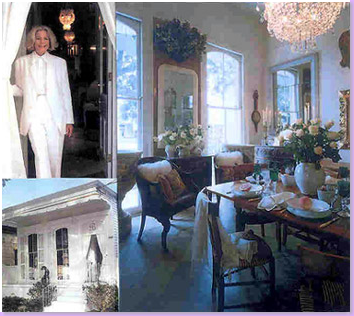
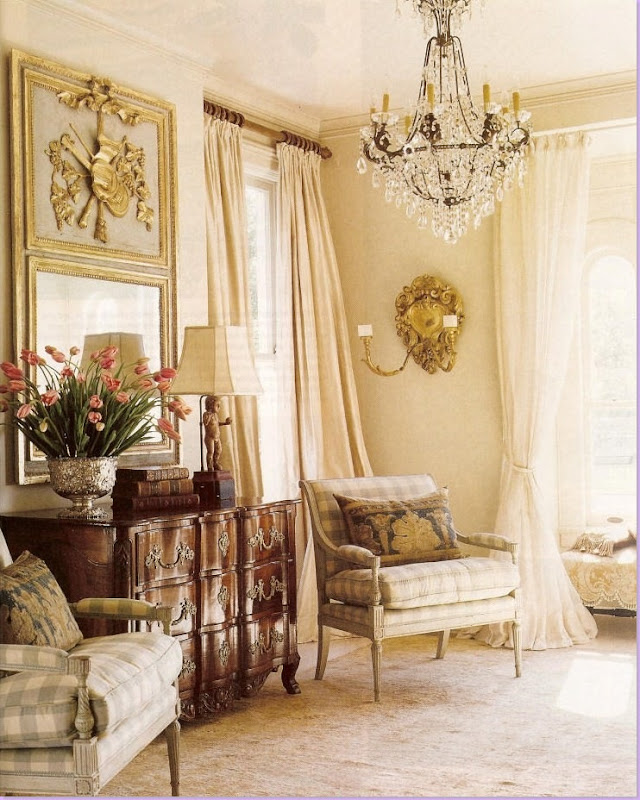


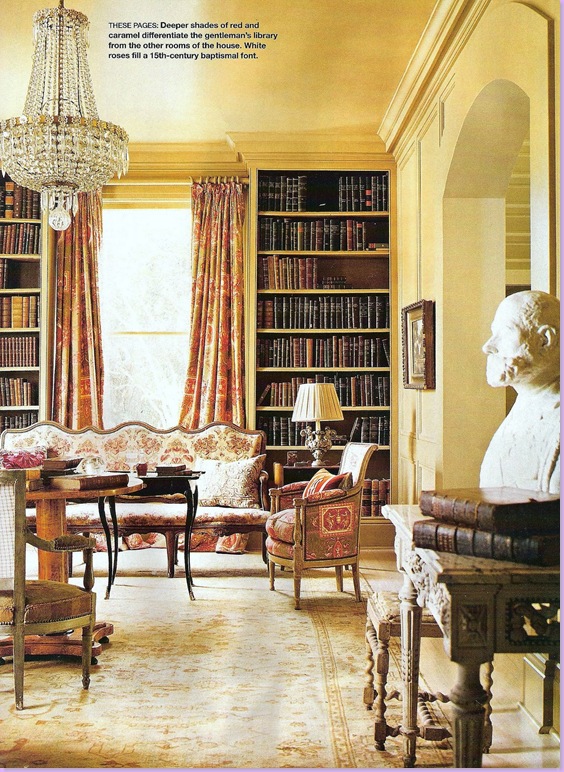
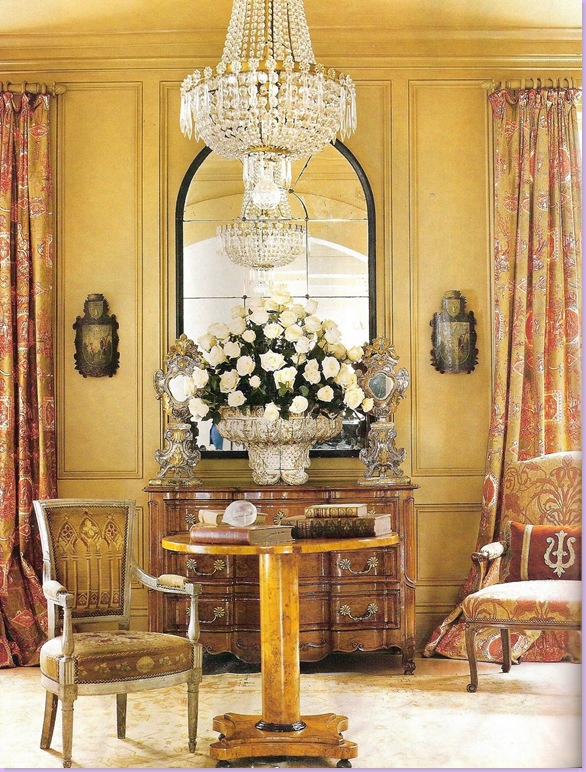

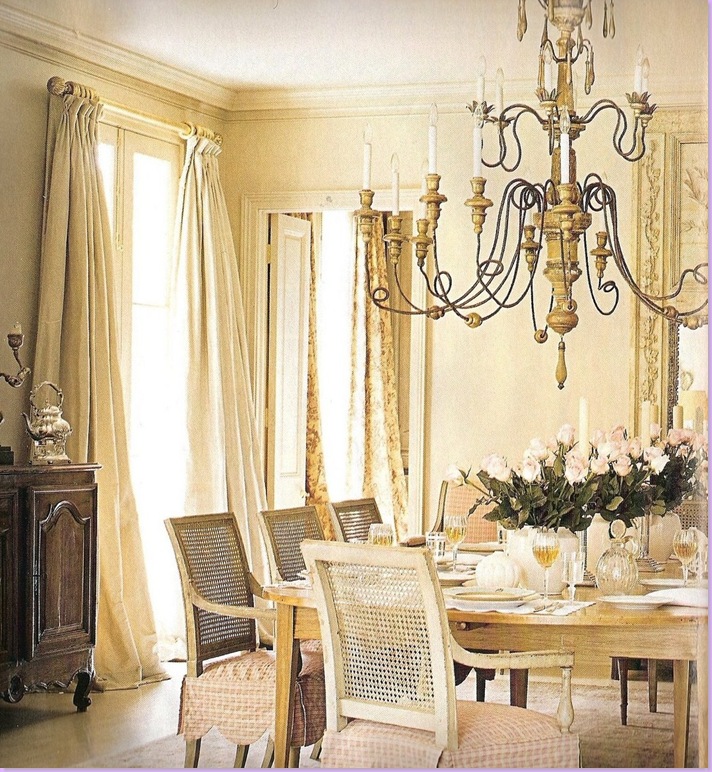

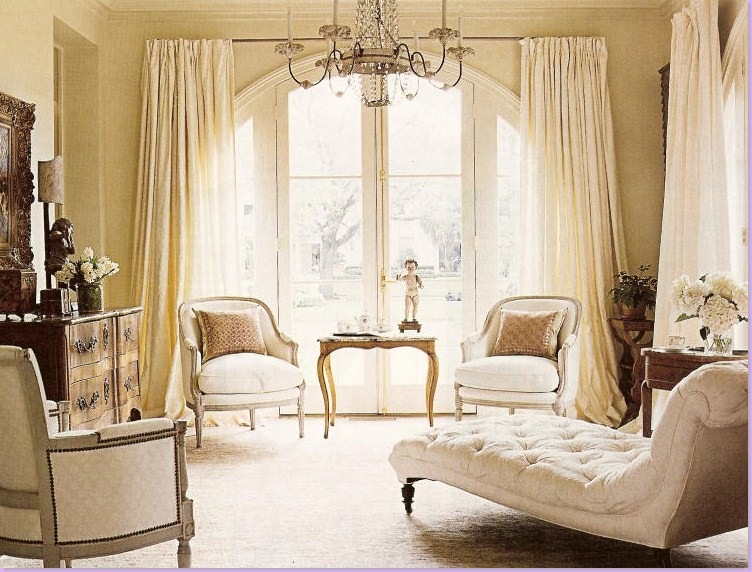
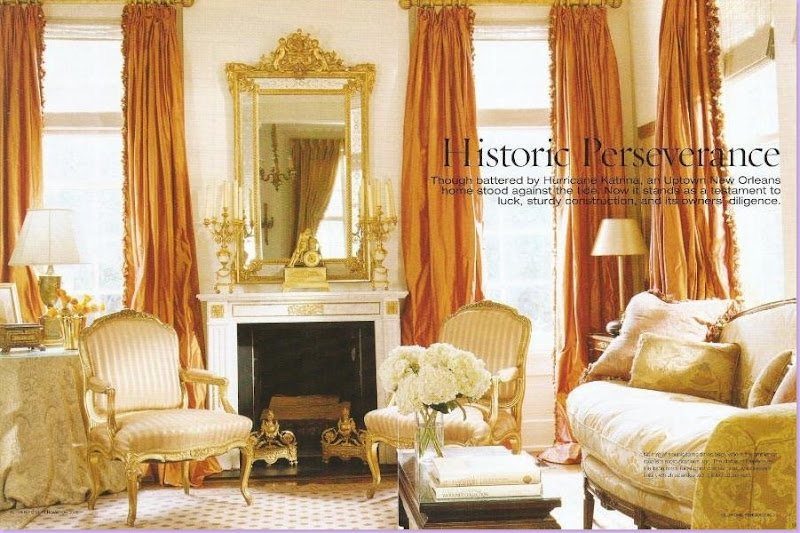
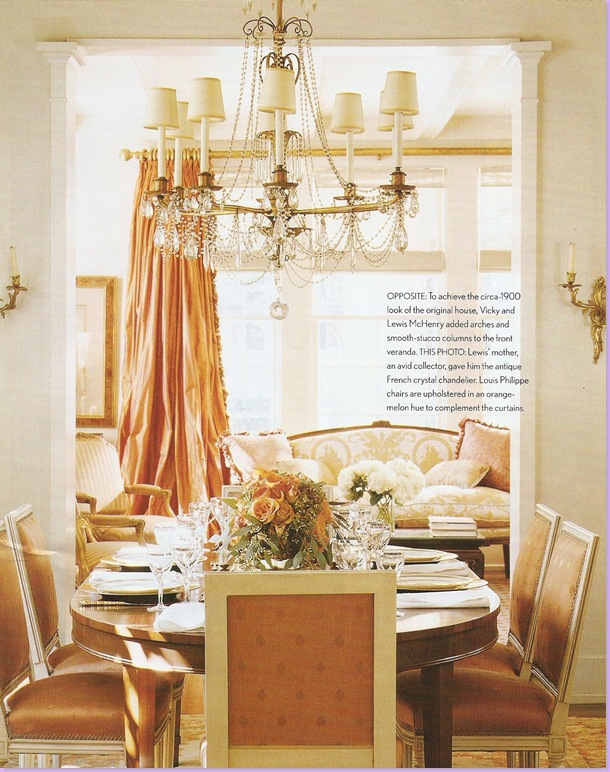
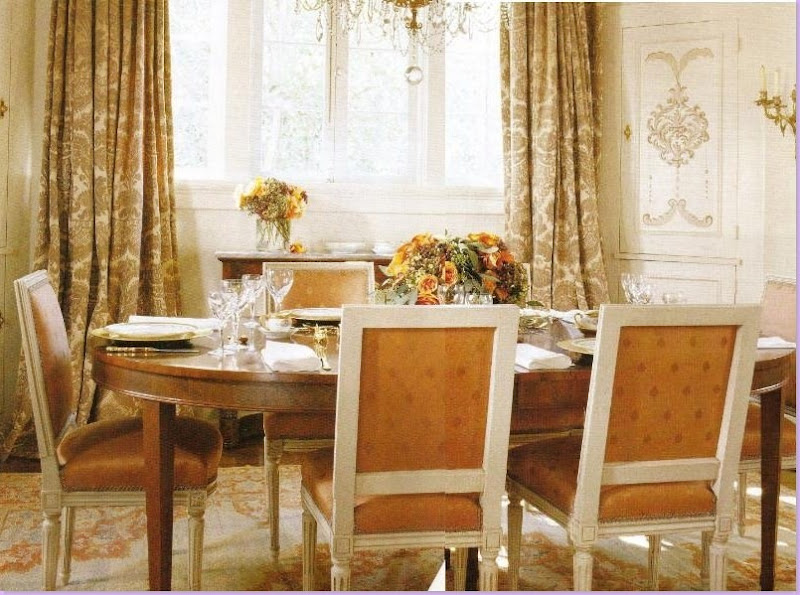
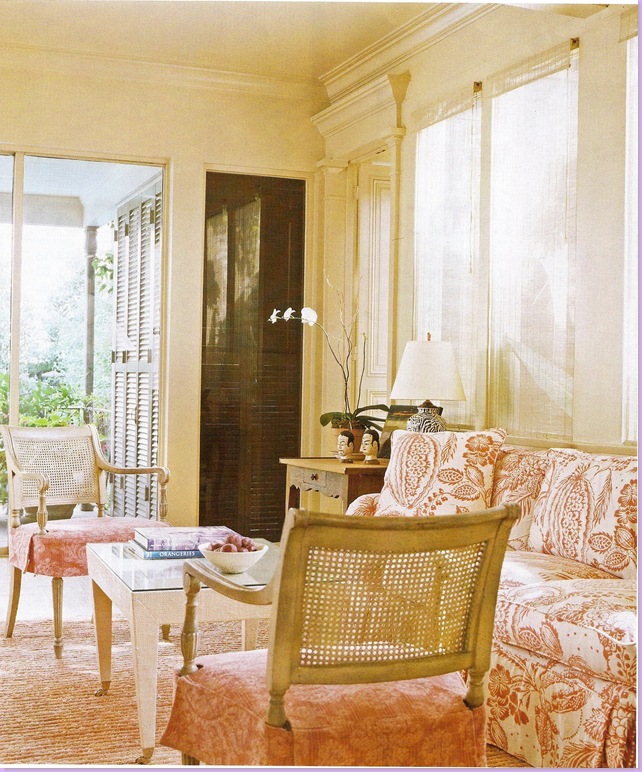
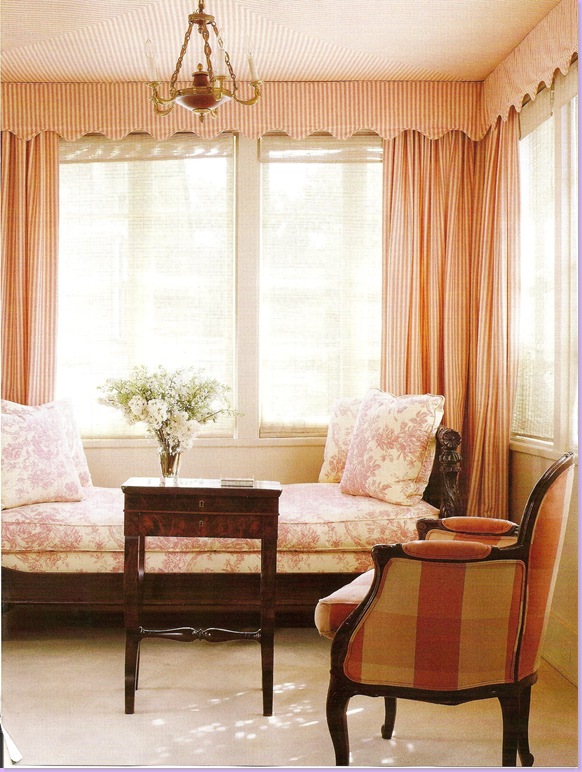
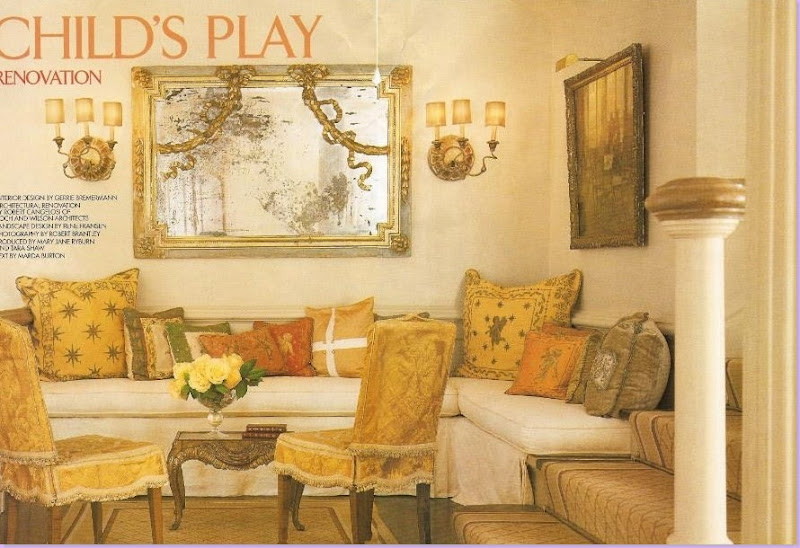


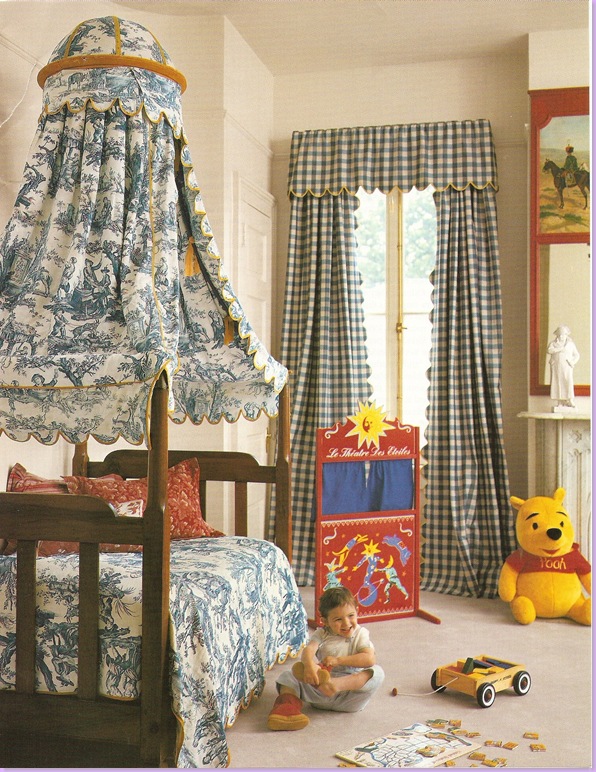

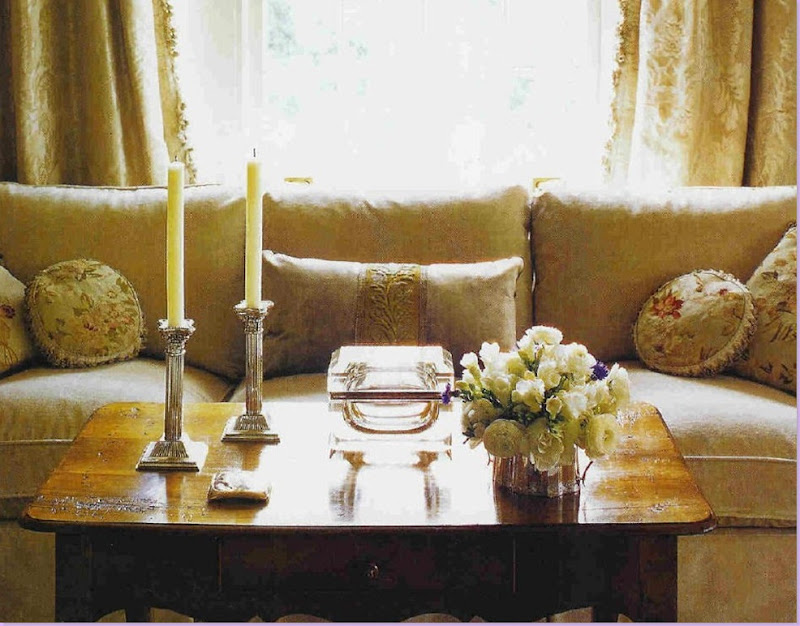
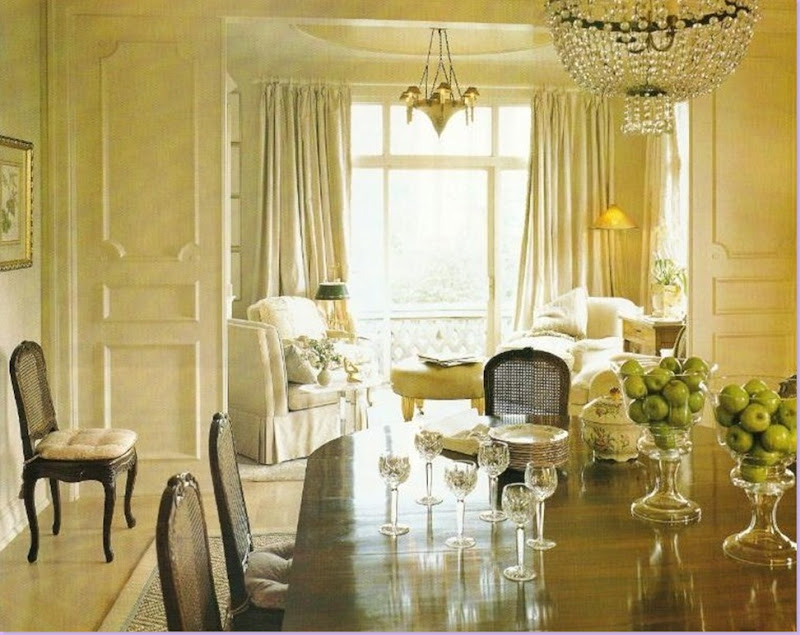

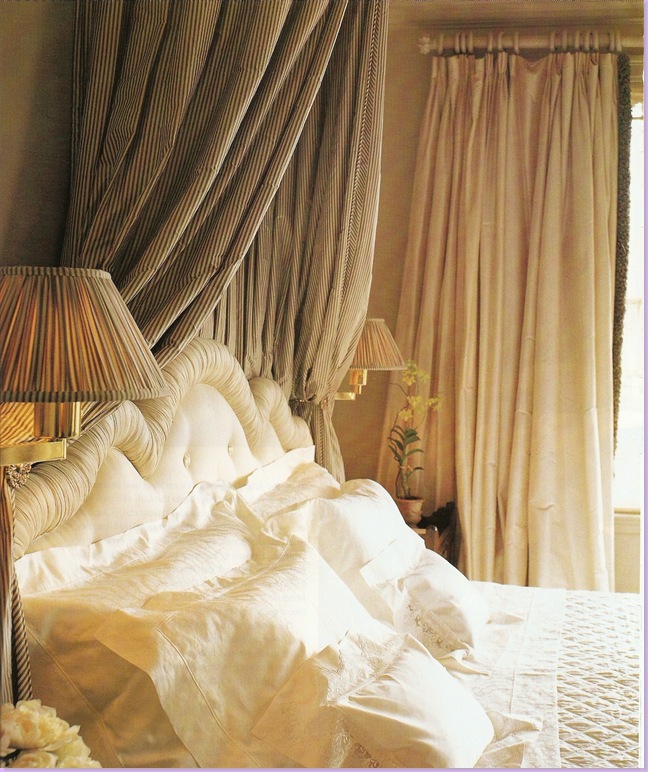

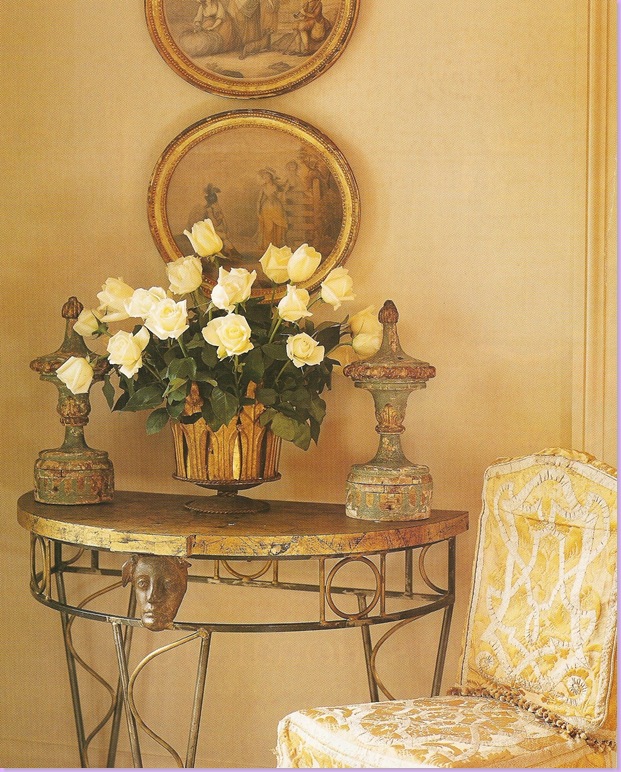


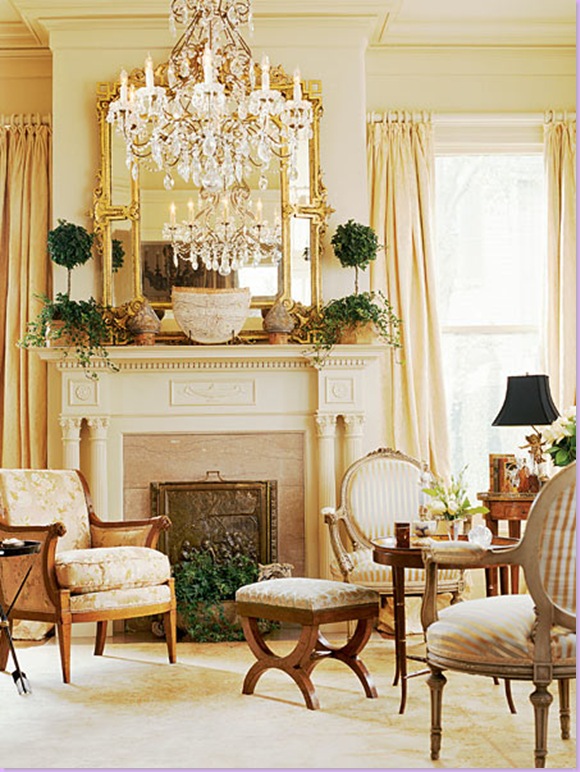



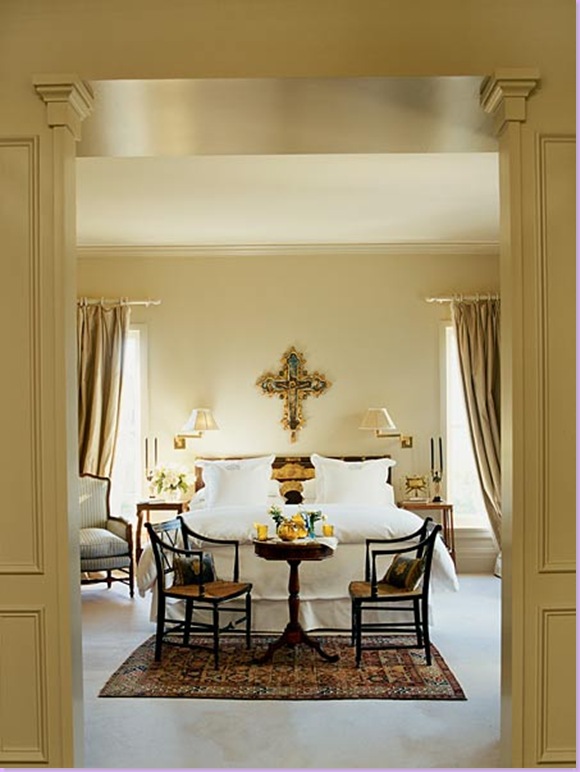

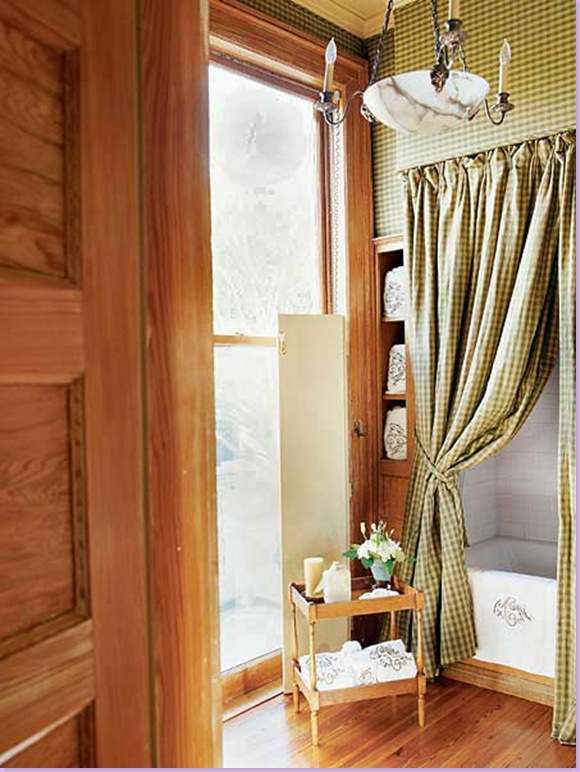
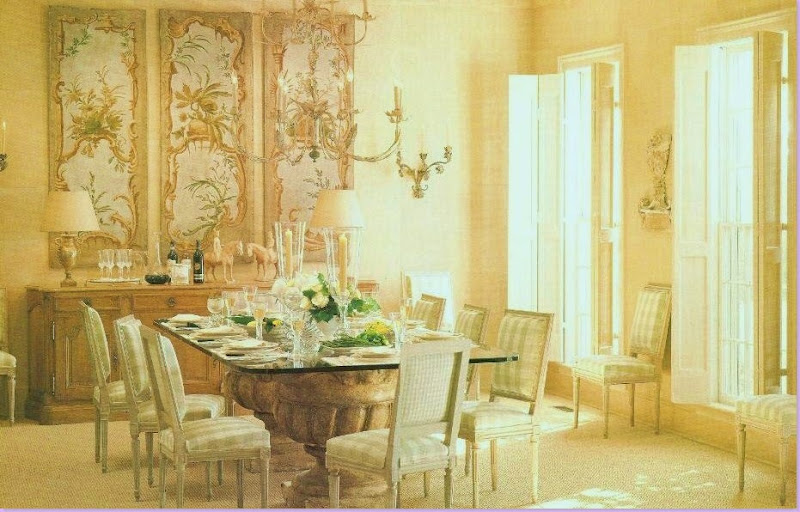
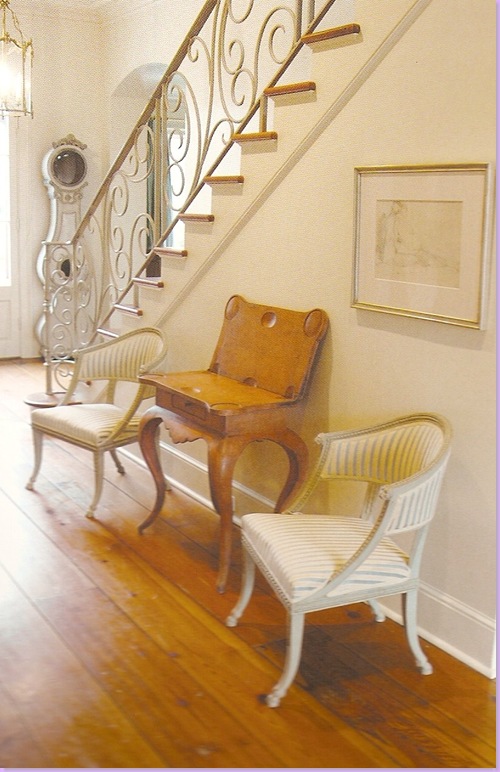
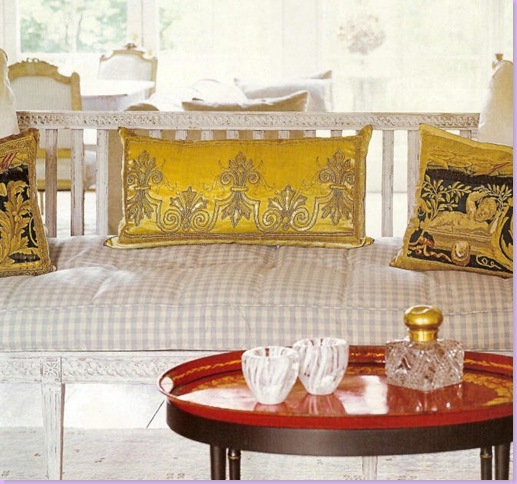
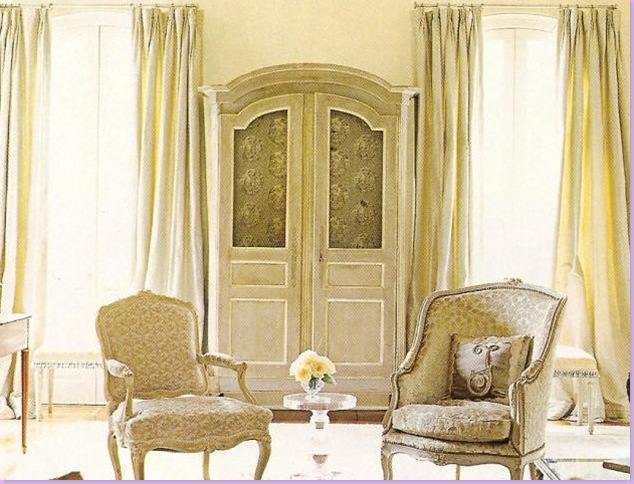
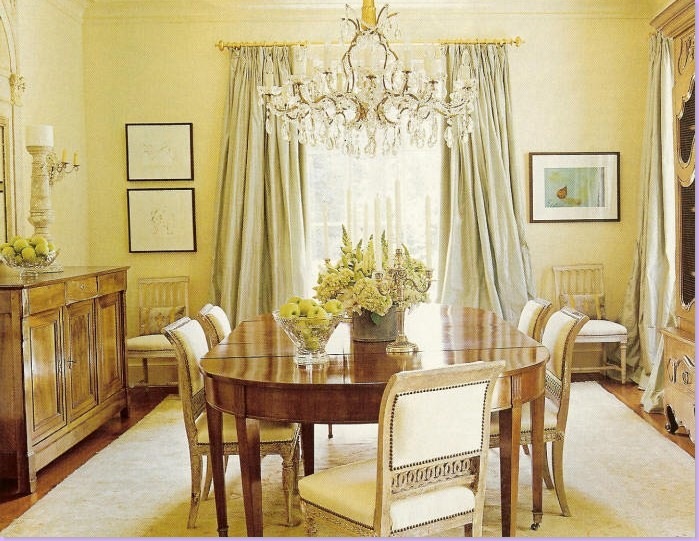
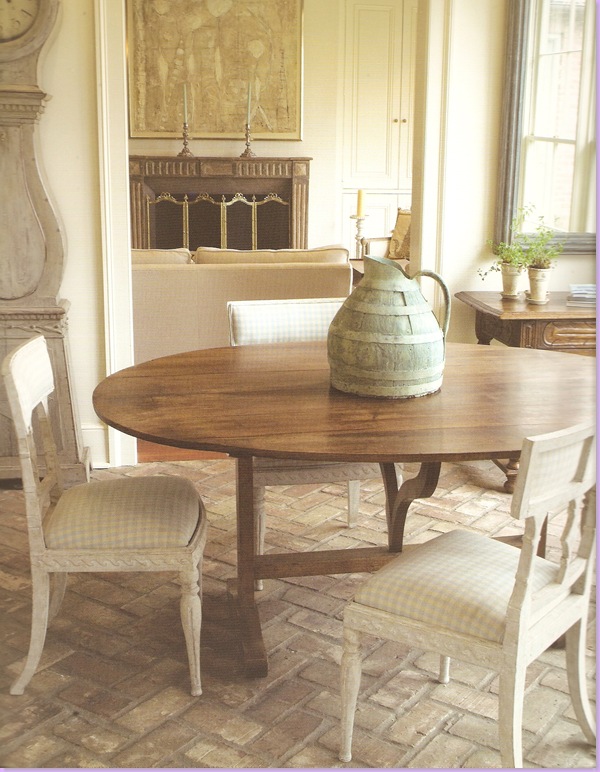
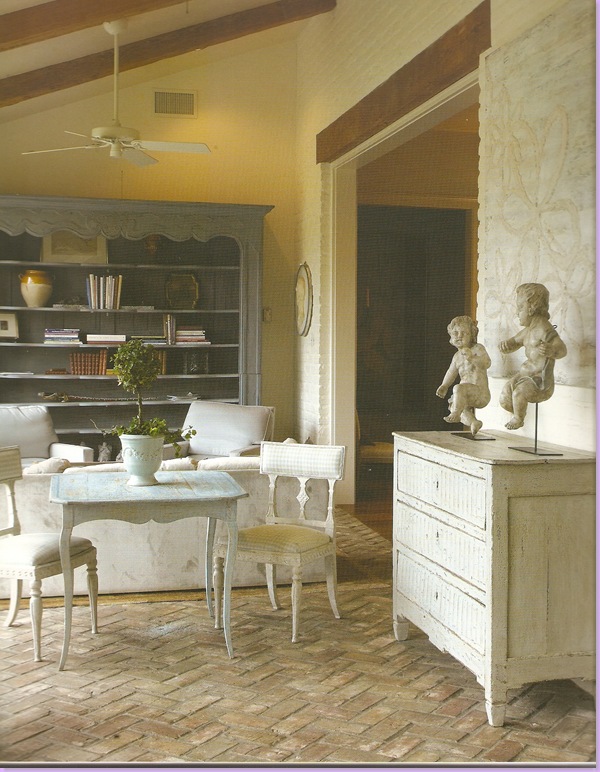
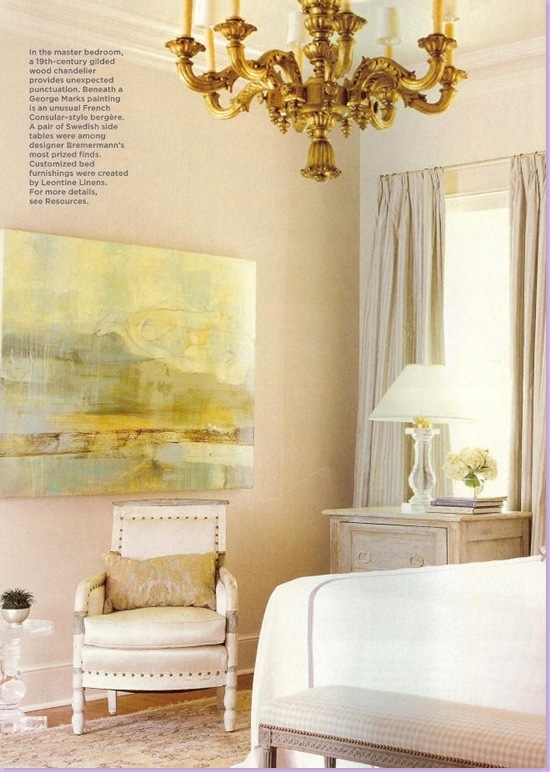
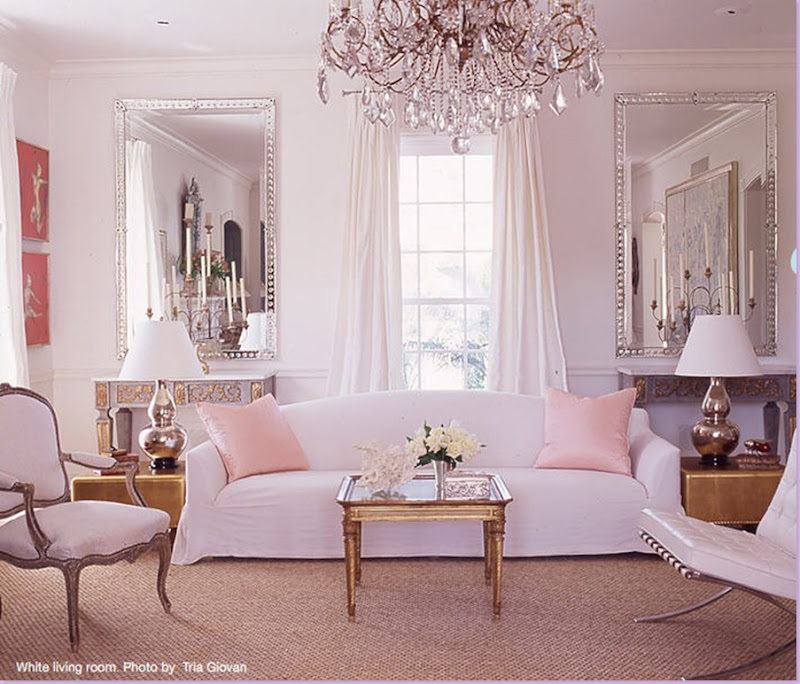
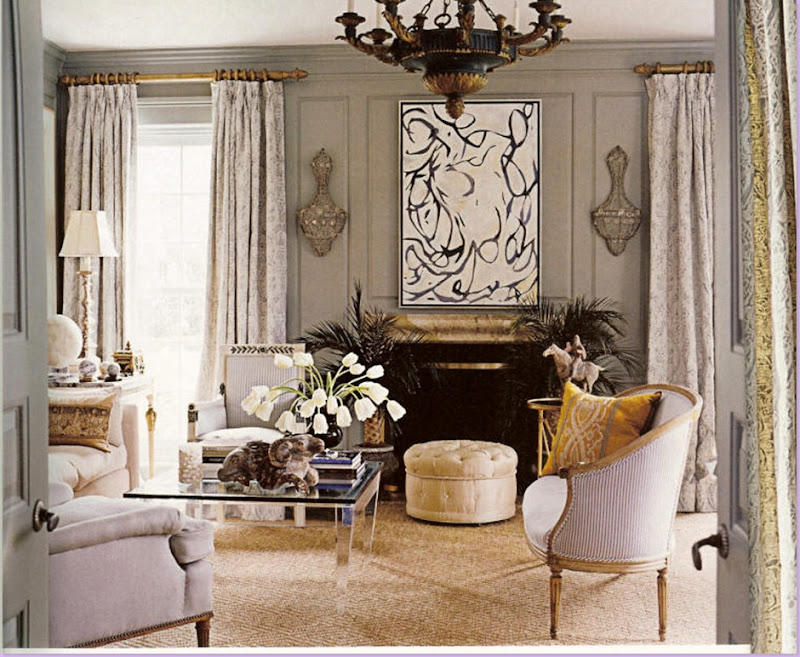
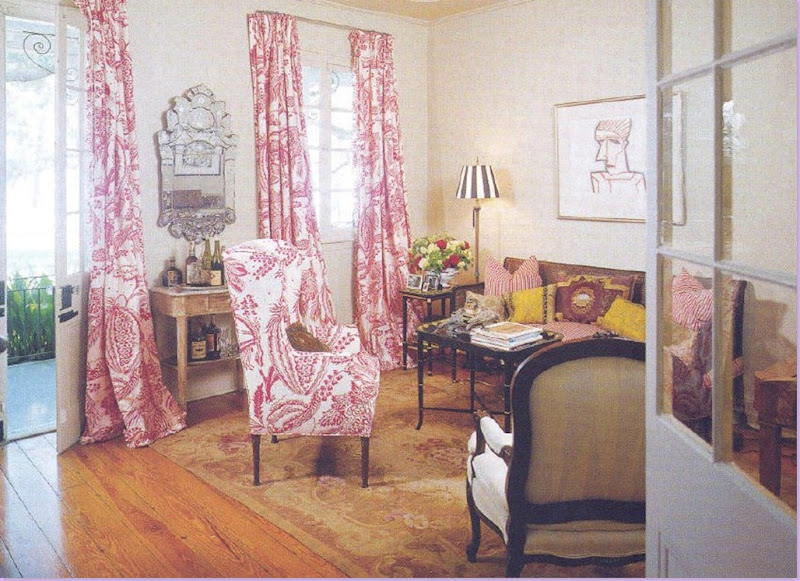
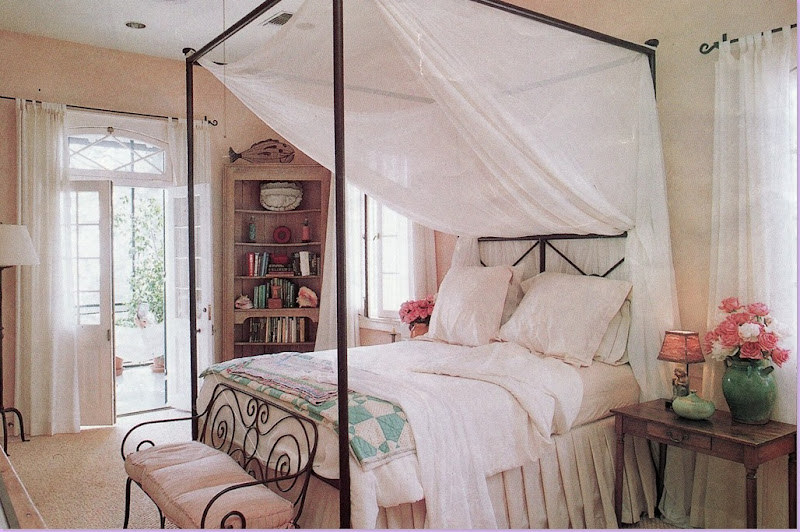
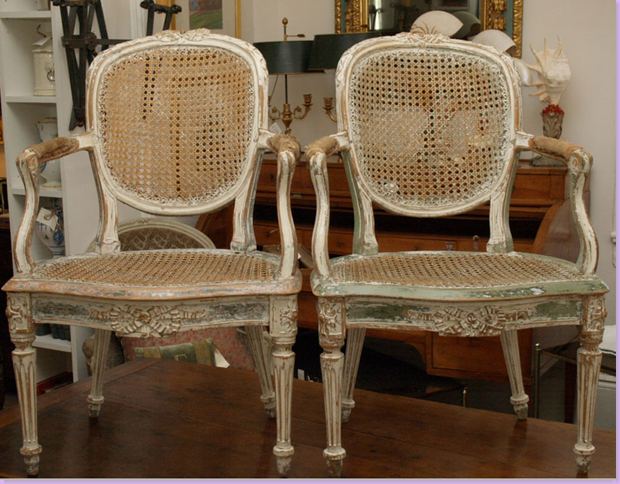
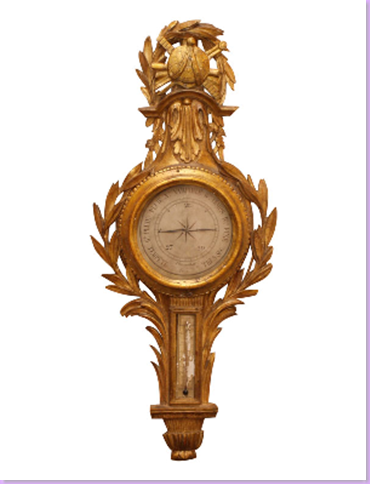
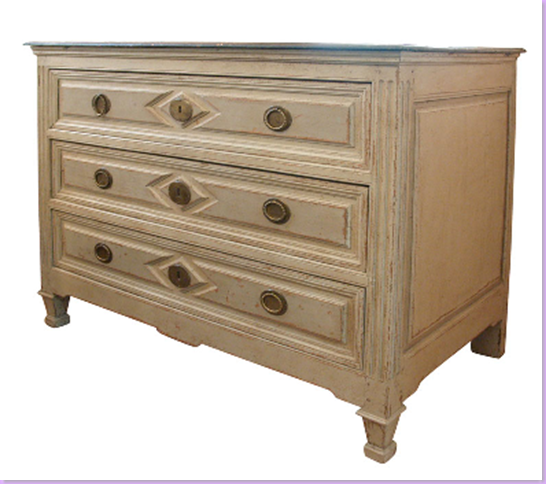
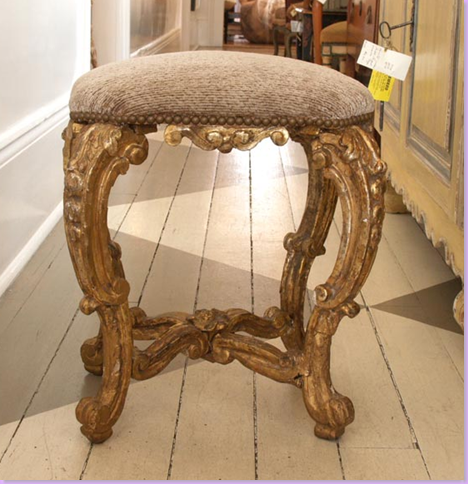
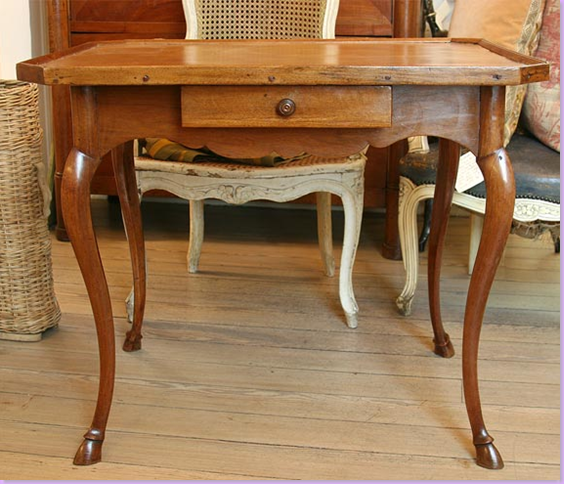
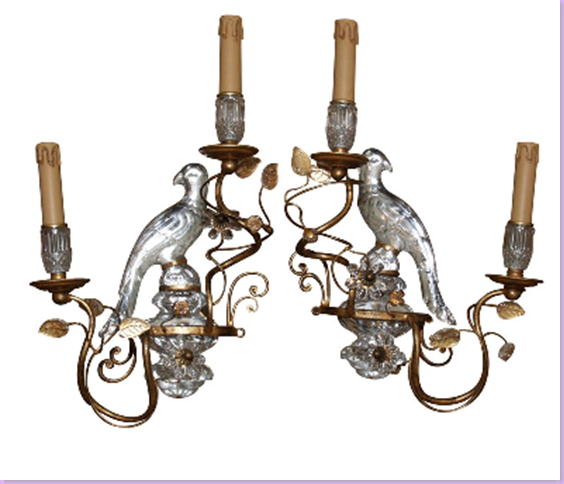
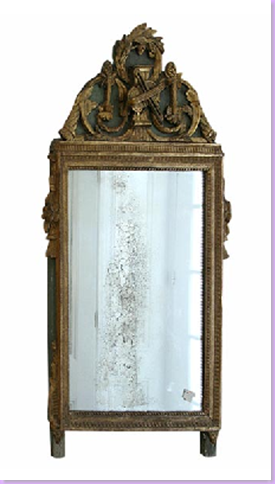
No hay comentarios.:
Publicar un comentario